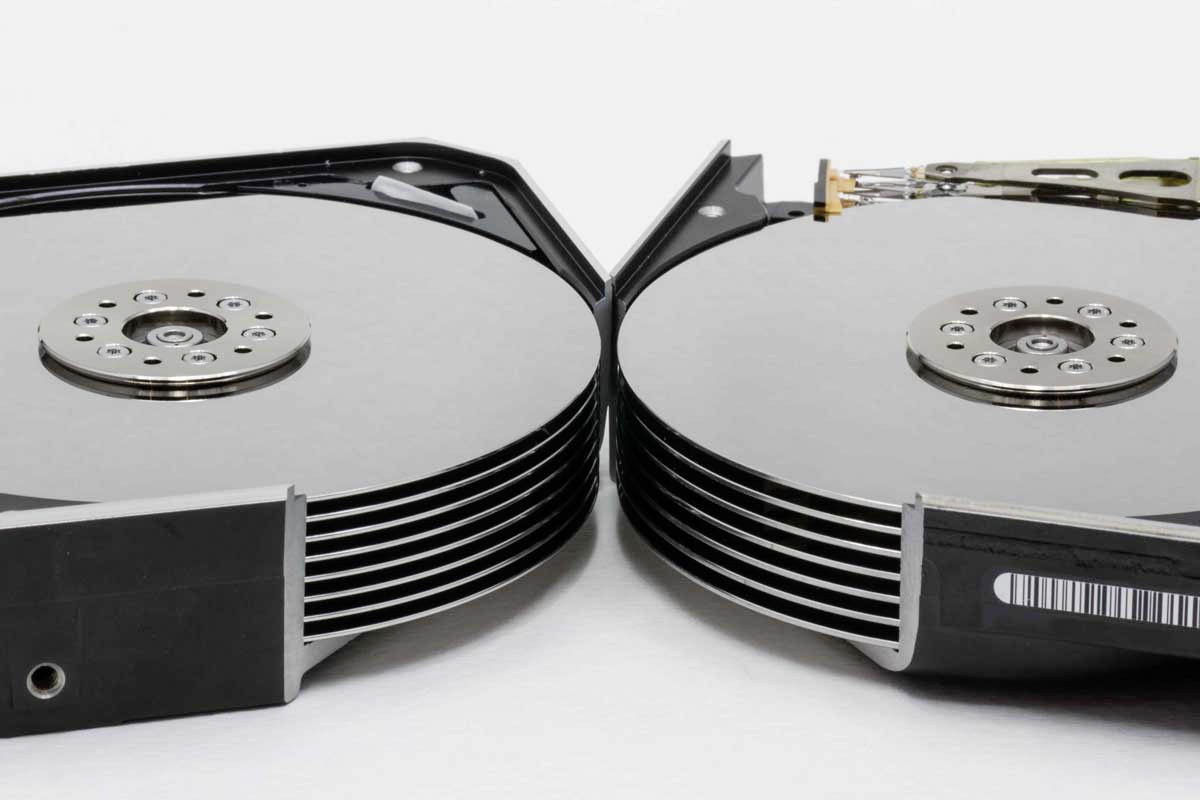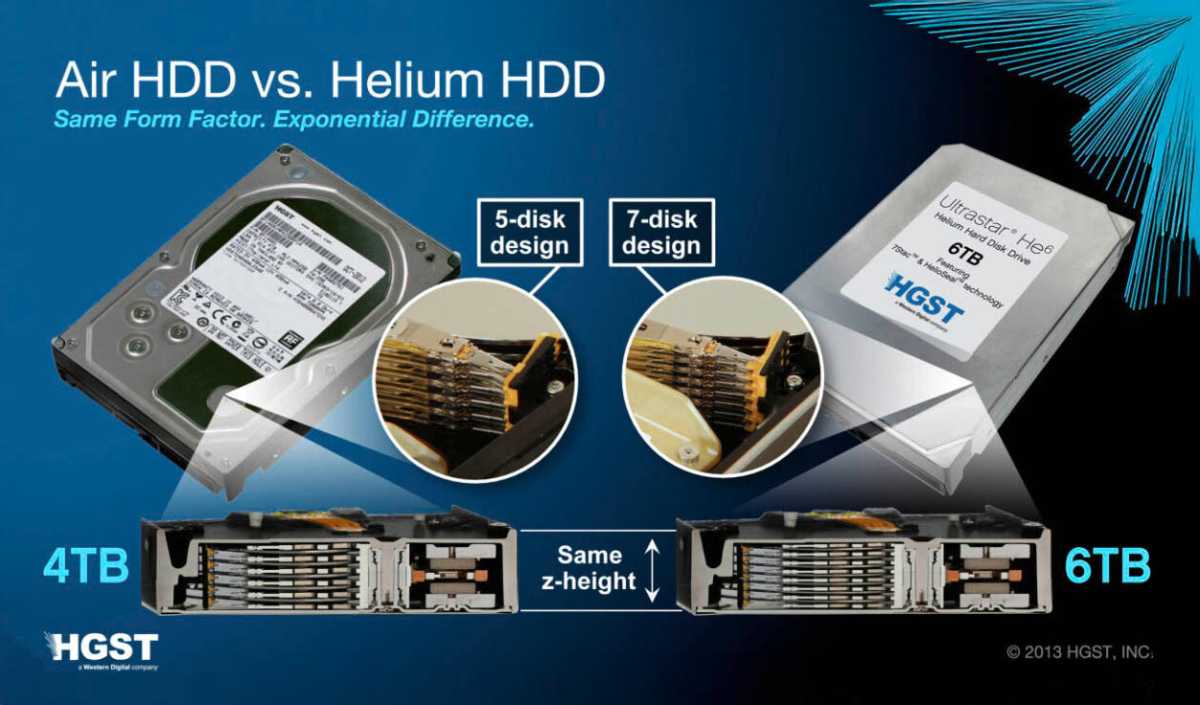Air is traditionally used as a filling medium in hard drives. However, because of its higher density, it creates resistance, which increases energy consumption and puts more strain on the mechanical components. This is an issue in hard drives that pack in a lot of data since it can slow things down.
Helium, though, is way less dense than air (about seven times less), so there’s a lot less resistance. That means the parts inside don’t have to work as hard, it uses less power, and the drive lasts longer.

IDG
A key advantage of helium is that it allows more discs to be fitted into a compact housing, significantly increasing storage capacity. This is an important benefit for data centers where space and energy efficiency are critical.
Lower friction in helium HDDs also enables more precise movement of the read and write heads, improving both speed and reliability. However, helium in HDDs isn’t without drawbacks: it tends to escape through even the smallest leaks. To counter this, manufacturers use complex sealing techniques, which raise production costs.
Additionally, helium is a limited resource in high demand across other industries, such as medicine. Even with recycling efforts, long-term availability remains a concern.

HGST
For private users, the advantages of helium HDDs are usually not decisive. The higher price is only worthwhile for extreme storage needs in very limited space. In most cases, conventional HDDs or consumer SSDs are the cheaper and often more powerful alternative.
Ak chcete pridať komentár, prihláste sa
Ostatné príspevky v tejto skupine

Whether you’re always on the go, always forget to charge your phone,

Deako takes a unique approach to smart lighting with its modular syst

The Shelly Group is now shipping most of the Z-Wave Long Range-based

It’s easy to get attached to a gaming mouse and avoid getting a new o

In another testament to how risky lifetime VPN subscriptions are, Bul


